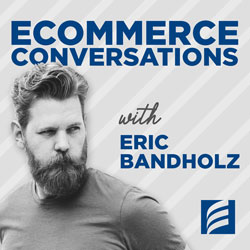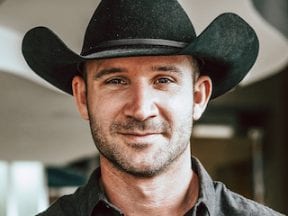I asked Will Roman, the founder of Chisos Boots, why he maintains a physical store. After all, nearly all of the company’s revenue is online, where it sells handcrafted boots worldwide directly to consumers. Isn’t brick-and-mortar an unnecessary expense?
“We’re essentially a family-owned business that happens to be online,” he told me. “The shop is a gathering place for people here in Austin, Texas, and elsewhere. We have a gentleman coming in this afternoon from El Paso.”
Beyond a gathering place, the shop hosts two large events annually with live music, food, and drink.
Roman and I discussed those events and more in our recent conversion, our second for this podcast. The audio of the new interview is embedded below. The transcript is edited for clarity and length.
Eric Bandholz: You’re a bootstrapped boot seller.
Will Roman: Yes. We’re self-funded. We have competitors who will hit $200 million in sales this year. But I know they are not profitable. They lose money with every pair they sell, whereas we’re thriving.
My business before Chisos was venture-backed. We built at breakneck speed and lost money the entire way. We sold the company and made the investors big profits. I was able to start Chisos with those proceeds. But we essentially had one customer, the acquiring company.
At Chisos, I’m attempting to build a community-based business that will be around for 30 or 40 years. I hope to hand it to my kids one day. It’s been just two and a half years since we launched.
As long as we’re moving up and to the right, especially on the profit side, we’re healthy.
We spend almost nothing on advertising. Two years ago, our return on ad spend was in the teens. Then it dropped off the cliff. We implemented some tweaks, and it still dropped. Part of the problem is reliable tracking. We get more customers than Facebook tells us because we can see where they’re coming from.
It’s a challenge to be a small business owner. You have to take care of yourself to maintain confidence when making decisions. Part of it is mental health. Part of that is accepting and knowing who you are and what type of business you run. I see no problem in forfeiting growth for quality of life.
I was a maniac in the first year of business. My morning routine started at 8:00 and stopped at 3:00 a.m. the next day. My life was about Chisos. I didn’t date, see friends, or go on trips. It was necessary to build the business.
Had I stayed in that manic phase, we would have grown faster. But I’m not sprinting anymore. Now it’s about longevity.
Much of the pleasure in running the business is doing what I like anyway. For example, our team travels to our namesake, the Chisos Mountains in West Texas, every year.
I also enjoy product development and the creative aspect of our videos. I’ll propose crazy video ideas to my team, such as, “Let’s go to a ranch with five gallons of gasoline and a bunch of Tannerite explosives. We could blow up some cowboy boots and put it on film for the 4th of July.”
Bandholz: How do you retain customers?
Roman: We’re very customer-focused. We go above and beyond. If someone has an issue unrelated to our product or service, we try to find an answer. Running a business requires personal relationships. We’ve learned to set boundaries, but I’ve resisted having inflexible policies. We’ll make exceptions for certain customers.
We’re shipping heavy items. Those costs are high. When a customer wants to exchange an order multiple times, we’ve learned to set boundaries politely. Most of our customers are amazing, but we’ll occasionally run into folks that abuse the system.
When we had our first fraud, someone bought a product and shipped it to an address. Shopify notified us that it looked shady. We sent it anyway. Within two hours of the delivery receipt, the customer filed a claim that it didn’t show up. We had proof of delivery. So we tried to contact that person but received no response. We’ve realized not everybody in the world is good.
Bandholz: Chisos operates a brick-and-mortar store. Why?
Roman: Ninety percent of our sales are online. We fulfill those orders from the shop. We’re essentially a family-owned business that happens to be online. The shop is also a gathering place for people here in Austin, Texas, and elsewhere. We have a gentleman coming in this afternoon from El Paso.
Bandholz: Tell us about your in-person events.
Roman: We host two major events at our facility every year, and we charge for admission. We have notable Texas bands perform. It’s pretty substantial. We have a big event for Memorial Day and one in November for our anniversary party, our best sales day of the year. We raise money for the Texas Military Forces Museum and land conservation. People mob the store while they’re here. For those who don’t attend, we post a slew of videos. There’s a lot of excitement around it.
I recommend in-person events to other online merchants on three levels. The first is the value the events bring to your life. I love interacting with new people and hearing their stories. That’s what makes it real. The second level is awareness. The more people come to our events, the more they learn about us.
The third level is sales. Events are great for the revenue from brand building.
Bandholz: Where can people find you and buy your cowboy boots?
Roman: Our website is Chisos.com, and we’re on Twitter, Instagram, Facebook, and YouTube. I’m on Twitter and LinkedIn.






